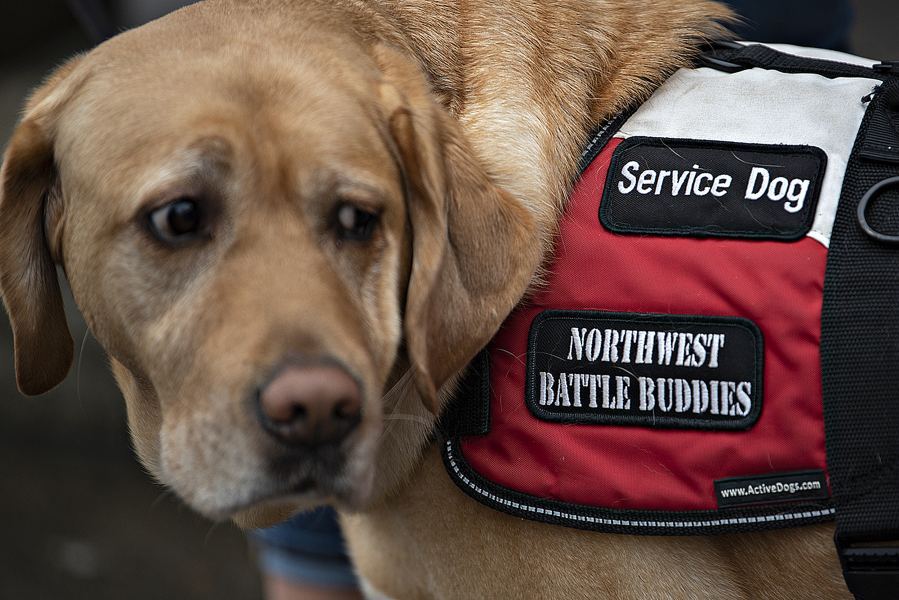One by one, service dogs and their veteran owners filed into Vancouver Mall to display their discipline and loyalty to one another.
Multiple tasks were laid out before them, including ascending and descending an escalator, entering the mall’s restroom, walking through a crowded department store and, finally, riding the elevator.




